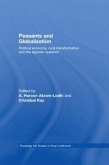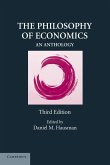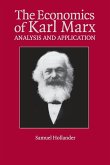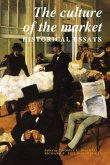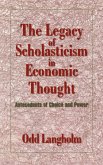The Peasants of Ottobeuren offers a new perspective on one of the enduring problems of early modern European history: the possibilities for economic growth and social change in rural society. Based on the voluminous records of the Swabian Benedictine monastery of Ottobeuren, this study underscores the limitations of the traditional narrative of a sixteenth-century boom which foundered on the productive rigidities of the peasant economy and then degenerated into social crisis in the seventeenth century. Population growth did strain resources at Ottobeuren, but the peasantry continued to produce substantial agricultural surplus. More importantly, peasants reacted to demographic pressure by deepening their involvement in land and credit markets, and more widely and aggressively marketing the fruits of their labour. Marriage and inheritance underwent a similar process of commercialisation which made heavy demands on the peasantry, but which maintained a degree of social stability through the devastations of war, plague and famine.
Table of contents:
Introduction; Might and right c. 1480-c. 1560; 2. The discrete society, c. 1480-c. 1560; 3. A crisis of numbers?, c. 1480-c. 1630; 4. Integrity and the market, c. 1560-c. 1630; 5. Living on borrowed time, c. 1560-c. 1630; 6. To empty and to refill, c. 1630-c. 1720; Conclusion.
The most detailed reconstruction to date of peasant society in early modern Germany, focusing on the lands of the Benedictine monastery of Ottobeuren. Based on a mass of archival data, the book argues that the German rural economy performed much better than has previously been believed.
A detailed reconstruction of the peasant society of the Benedictine monastery of Ottobeuren.
Hinweis: Dieser Artikel kann nur an eine deutsche Lieferadresse ausgeliefert werden.
Table of contents:
Introduction; Might and right c. 1480-c. 1560; 2. The discrete society, c. 1480-c. 1560; 3. A crisis of numbers?, c. 1480-c. 1630; 4. Integrity and the market, c. 1560-c. 1630; 5. Living on borrowed time, c. 1560-c. 1630; 6. To empty and to refill, c. 1630-c. 1720; Conclusion.
The most detailed reconstruction to date of peasant society in early modern Germany, focusing on the lands of the Benedictine monastery of Ottobeuren. Based on a mass of archival data, the book argues that the German rural economy performed much better than has previously been believed.
A detailed reconstruction of the peasant society of the Benedictine monastery of Ottobeuren.
Hinweis: Dieser Artikel kann nur an eine deutsche Lieferadresse ausgeliefert werden.



